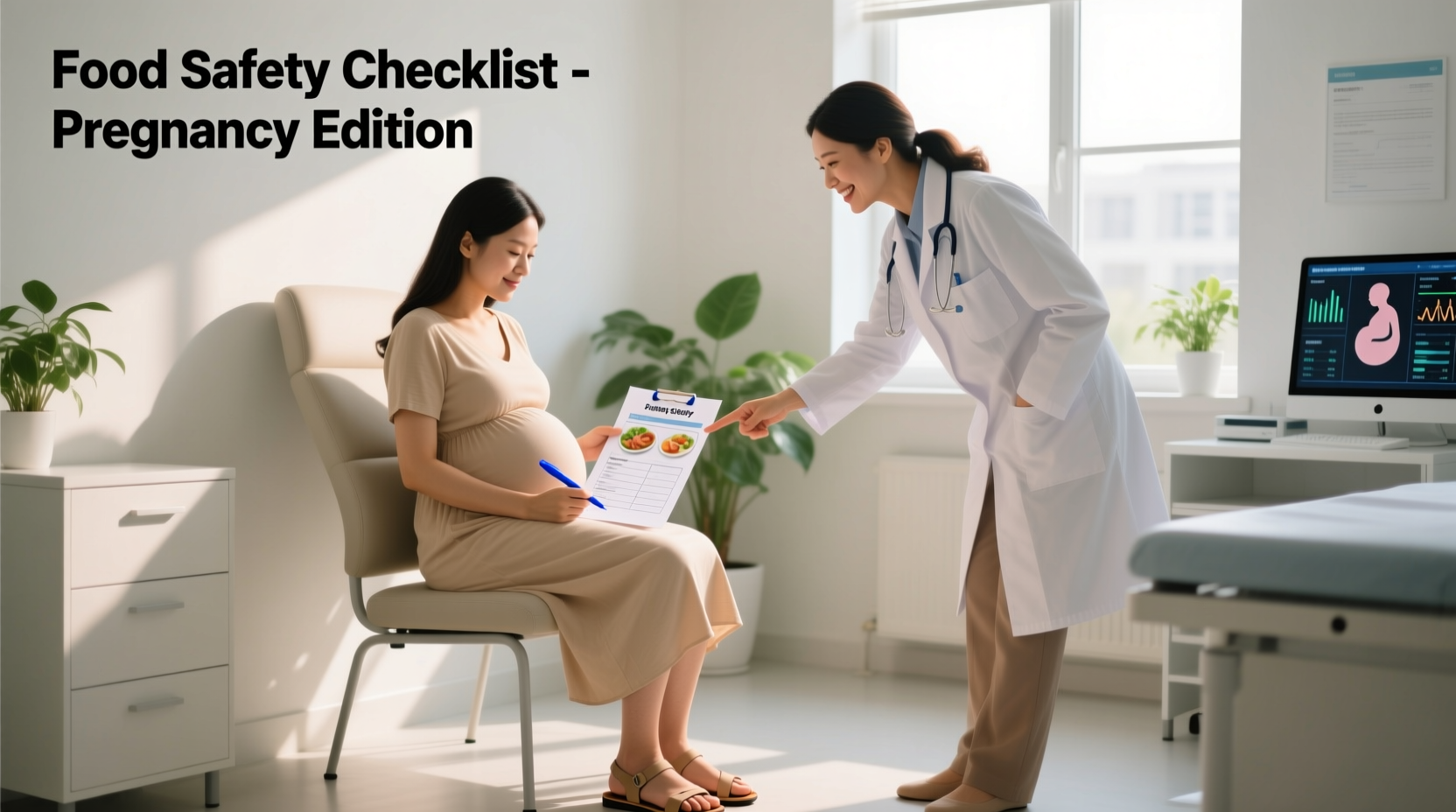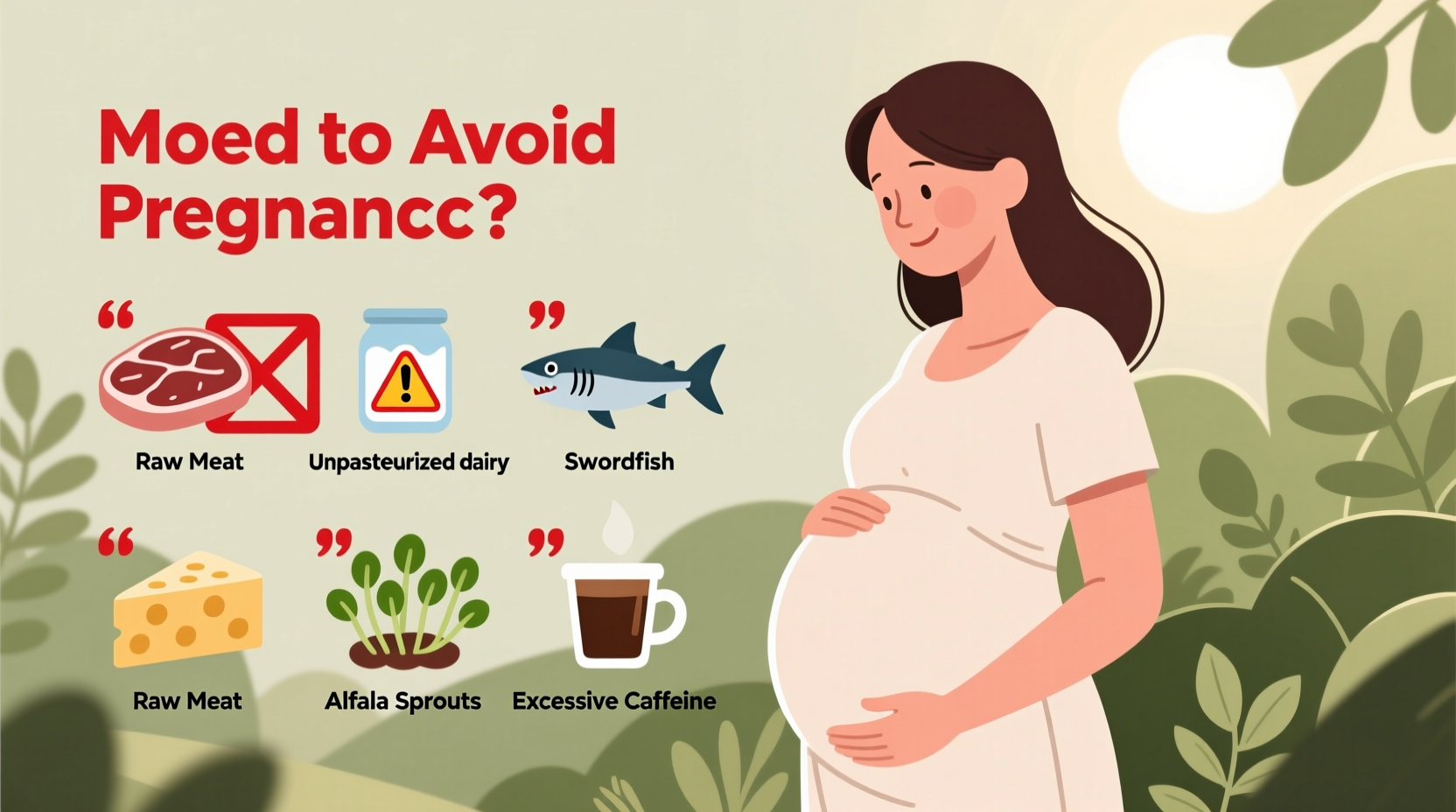During pregnancy, your food choices directly impact your baby's development and your own health. Certain foods carry hidden risks that become significantly more dangerous when you're expecting. Understanding what foods not to eat when pregnant isn't just about following rules—it's about protecting your growing baby from preventable harm.
Why Pregnancy Changes Food Safety Requirements
Your immune system naturally suppresses during pregnancy to accommodate your growing baby. While essential for fetal development, this makes you more vulnerable to foodborne illnesses. What might cause mild discomfort in non-pregnant adults can lead to severe complications—including preterm labor, stillbirth, or lifelong disabilities for your baby.
According to the Centers for Disease Control and Prevention, pregnant women are ten times more likely to contract listeriosis than the general population. This bacteria can cross the placenta and infect your baby, even if you show no symptoms.
High-Risk Foods to Eliminate Immediately
These foods present the most significant dangers during pregnancy and should be completely avoided:
| Food Category | Specific Items to Avoid | Primary Risk | Medical Guidance Source |
|---|---|---|---|
| Raw/Undercooked Meat | Sushi, rare steak, carpaccio, raw oysters | Toxoplasmosis, salmonella | ACOG |
| Unpasteurized Dairy | Soft cheeses (brie, feta, queso fresco), raw milk | Listeria monocytogenes | FDA |
| High-Mercury Fish | Shark, swordfish, king mackerel, tilefish | Neurological development issues | WHO |
| Raw Eggs | Homemade mayonnaise, Caesar dressing, cookie dough | Salmonella infection | NHS |
Understanding Context Boundaries: When "Sometimes" Matters
Not all food restrictions are absolute. Certain foods require context-specific evaluation:
- Cheese exceptions: Hard cheeses like cheddar and swiss are safe even when unpasteurized because their low moisture content prevents listeria growth
- Fish guidelines: While high-mercury fish must be avoided, the FDA recommends 2-3 servings weekly of low-mercury options like salmon and shrimp for optimal fetal brain development
- Caffeine limits: Up to 200mg daily (about one 12oz coffee) is generally considered safe, but many practitioners recommend minimizing all caffeine during first trimester

Practical Food Safety for Daily Pregnancy Life
Implementing these guidelines doesn't mean sacrificing nutrition or enjoyment. Follow these practical strategies:
Grocery Shopping Protocol
Always check labels for "pasteurized" on dairy products and "cooked to 165°F" on pre-cooked meats. When in doubt, choose alternatives you know are safe. The American College of Obstetricians and Gynecologists confirms that properly cooked meats and pasteurized dairy provide essential pregnancy nutrients without the risks.
Restaurant Dining Safely
Don't hesitate to request modifications. Most establishments will accommodate requests for well-done meats or substitutions. When ordering fish, ask specifically about mercury levels—many restaurants now provide this information. For salad dressings and sauces, request pasteurized egg versions or oil-based alternatives.
Meal Planning Framework
Create a weekly meal plan that includes:
- 3-4 servings of low-mercury fish
- Daily pasteurized dairy or fortified alternatives
- Thoroughly cooked lean proteins
- Washed fresh produce (scrub firm produce like melons)
This structured approach ensures you're getting essential nutrients while avoiding foods to avoid while pregnant first trimester and beyond. Remember that food safety during pregnancy isn't about deprivation—it's about making informed choices that support your baby's development.
Special Considerations and Common Concerns
Many women worry about accidental consumption of restricted foods. If you've eaten something questionable:
- Monitor for symptoms: Fever, muscle aches, or gastrointestinal issues within 2-30 days may indicate listeria exposure
- Contact your provider: Don't wait for symptoms if you consumed high-risk items like unpasteurized soft cheeses
- Don't panic: Single exposures rarely cause complications, but prompt medical evaluation provides peace of mind
When traveling, research local food safety standards beforehand. In regions with questionable water quality, avoid fresh produce that can't be peeled. The CDC recommends carrying a printed copy of pregnancy food restrictions to show restaurant staff when language barriers exist.
Pregnancy Food Safety: Beyond the Basics
Emerging research continues to refine our understanding of pregnancy diet restrictions by trimester. While first trimester focuses primarily on preventing miscarriage risks, third trimester guidance emphasizes managing gestational diabetes and preventing preterm labor triggers.
The National Institutes of Health notes that proper food safety during pregnancy reduces NICU admissions by 18% and lowers preterm birth rates. These statistics underscore why understanding exactly what not to eat during pregnancy for baby's health matters beyond simple precaution.











 浙公网安备
33010002000092号
浙公网安备
33010002000092号 浙B2-20120091-4
浙B2-20120091-4